Opinion
Internal haemorrhage as threats to telecoms services

By Sonny Aragba-Akpore
Without sounding a death-knell,telecommunications service companies are troubled.
Although,the big players display glamour and pictures of “all is well” what you see is
nothing but a facade as the companies are grasping for breath as a result of the internal haemorhage plaguing their service provision.
And unless government rejigs its policy on foreign exchange as a quick intervention, to cushion importation of equipment to boost services,many of the so called A grade players may go into worst shapes.
Operating Expenditure (OPEX) has more than doubled since 2021 and with dwindling foreign inflows through Foreign Direct Investments(FDIs), some telcos are now holding on to straw to survive.
The operators see their biggest challenges in their inability to provide quality of service and a result of recurrent vandalism of their infrastructure.
Every operator has become its own electricity power provider as supplies from national grid are now a pipe dream.Added to this, the spiral costs of diesel and its alleged incessant theft of same by unnamed persons creates bigger problems.
The rising cost of diesel is very worrisome as a litre that sold between 1200/1400 at pump landing at site is now as high as NGN 2000 per litre on site in some parts of the country.
Confirming the internal haemorhage,in the sector,an official who wants to be anonymous said part of the haemorrhage stems from significant high interconnect debts between players. Telcos are being owed alot of money thereby leading to terminal struggles for survival.
The telcos also list Political incursions as a major drawback hindering survival.
On the issue of Forex sources : “willing seller, willing buyer on forex, problem is bills that are being settled now due to long wait for forext transactions when Forex was at 700N =US1 and now being paid at the prevailing rate of 1,400+
High OPEX remains a major issue coupled with Low FDIs leading to concerns in industry sustainability.
They claim that the regulator is in a dilemma especially on tariff hike issues.
So Telcos are now on bent knees scrapping to provide services below cost.
And the Government looks elsewhere inspite of manifest inflation on every single item especially now that Infrastructure are experiencing decay and to replace same is slow and painful as telcos lament their inability to deliver robust Services .
To underscore a picture of this haemorrhage,
MTN Nigeria and Airtel Africa (the only two telcos publicly traded) lost N479 billion to currency revaluation and recorded reduced profit margins in the first nine months of 2023.
In its financial report for Q1, 2024, for instance,MTN reported a second successive loss after declaring a loss after tax of N392.7 billion for the first quarter of 2024.
This is coming despite growing its service revenue by 32.0 per cent to N747.3 billion year-on-year, the telco recorded its second loss since it was listed on the Nigerian Exchange.
It noted that its net loss for the quarter further increased its accumulated losses and negative shareholders’ funds to N599.2 billion and N434.7 billion, respectively. It highlighted that its profit after tax adjusted for the net forex loss declined by 57.8 per cent to N47.1 billion.
“Further adjusting for the impact of the naira devaluation in OPEX, PAT would have been down by 5.3 per cent to N105.6 billion,” MTN said. The telco’s net foreign exchange loss stood at N656.37 billion.
MTN Nigeria’s chief executive officer, Karl Toriola, noted that severe macroeconomic headwinds overshadowed a solid operating performance. He said: “The operating environment in the first quarter remained very challenging, with rising inflation and continued naira depreciation off an already low base.” He stated that the naira’s devaluation and record-high inflation have impacted the operating environment for businesses in Nigeria.
The operators are agitating for tariff hikes as part of measures to sustain their operating expenditure.But that is half way through if all they get the regulator,s ,Nigerian Communications Commission (NCC)’s nod.
The operators are trying to justify the tariff increase because “Consumer prices in other sectors have seen a steep rise over the last six years as they adjust to reflect macroeconomic realities. However, telco prices have remained flat and even declined. Contrary to the price trends in other sectors, telcos have had to adjust for the macroeconomic headwinds caused by an increasing erosion of margins. Other highly regulated sectors such as power and insurance have implemented price increases over the last year. Insurance prices have risen 200 per cent with power raising prices by over 40 per cent.”
They also decry the strong macroeconomic headwinds which have occasioned tough operating conditions, leading to a decline in CAPEX (Domestic) and Foreign Direct (Capital Inflow) investments into the industry by 30.37 per cent and 46.9 per cent respectively between 2021 and 2022.
These headwinds include inability to source foreign exchange and attract foreign direct investment because investors have become uncomfortable because of the grave economic uncertainty in the country.
Without meaning to link the crisis to a flip flop economy,the operators think unless something urgent is done,providing quality of service will not be sustainable because of the multiple effects of operating costs.
Owing to the macroeconomic crisis , resulting in increased cost of operation and overheads, most telecom companies in Nigeria have been posting losses, making it difficult for them to pay their Annual Operating Levy (AOL) to the Commission as and when due.
The operators are worried about the restrictive regulatory approach which is unconducive for the highly needed innovation in this evolutionary era of newer communication technologies.
“We invite the EVC to note that the convergence of telecommunications with digital and multimedia services has greatly reduced the revenue streams from traditional telecommunications services (voice, SMS, etc.)and to survive this digital era, telecommunications operators have no choice but to quickly evolve into digital and platform service providers which enable newer and advanced means and uses of communications technology and this is only possible in a regulatory environment that enables the development of innovative products and services, with a flexible regulator that is well-informed on the latest technology developments/requisite regulatory frameworks, and an appreciation for the reverberating impact of derailing this progression.” they lamented.
In 2023,MTN declared its first loss after tax of N137 billion. and Its retained earnings and shareholders’ fund fell to negative N208.0 billion and N40.8 billion, respectively.
For Airtel, profit before taxes result for the half-year 2023 was much worse, it dropped by a staggering 97.7 per cent – from $516 million to $12 million – compared to the results from 2022.
The report showed that Airtel had consistently grown its revenue in Nigeria since Q2 2018. The only time there was a drop in revenue between quarters was in 2020 when revenue dropped from $377 million in Q1 2020 to $341 million in Q2 2020. This $36 million drop in revenue is nothing compared to the decline seen in 2023.
Its revenue for Q1 2023 was $543 million, a $2 million drop compared to the previous quarter – $545 million in Q4 2022. By Q2 2022, the drop in revenue increased by $15 million, from $543 million to $528 million.
Although figures of losses sustained by the other unquoted telcos are unavailable,there are strong indications that all is not well.
Several of them are owing interconnect fees and generally unable and or late in payment of AOL.
Consequently,the late and inability to pay AOL to the NCC tells one of the bad stories of the situation on ground.
In general terms,the sector is believed to be wobbling and In fits.
Deposit Money Banks are also part of the telcos headaches as they are believed to be indebted to the tune of about Two hundred billion naira (#200b) in unsettled Unstructured Supplementary Service Bus(USSD) services rendered by telcos to the banks.
The telcos also bemoan the fate of their equipment and infrastructure across the country.
They had canvassed for comprehensive protections for their infrastructure by suggesting to government to make telecommunications equipment Critical National Infrastructure (CNI) but government officials say this is “Work In Progress (WIP) as the telcos wait in limbo.
Apart from these,they have had to contend with multiple taxations whereby the Federal Government,states and council governments put immense pressure on telcos for various taxes at different levels.
Apart from the taxes,Right of Way is an albatross that had defied any solutions and so the telcos have had to live with it.
The telcos say that
“notwithstanding the much-touted resilience of the telecommunications sector and its commendable double-digit contribution to the GDP, we wish to strongly impress on the NCC the pressing need to avert the grave risk looming in the industry’s horizon by taking clinical and definitive action towards repositioning the industry for growth and increased investments, because ultimately , it is our considered view that a thriving telecommunications sector will have a far-reaching effect on:
o Mobile Network Operators as they will remain going concerns who can carry on sustainable operations with the overall intention of value creation and enabling connectedness;
o The maximization of consumer welfare for Nigerians who, as the the NCC rightly noted, are the most critical stakeholders in the telecommunications value chain; and
o The Government itself, given that the net effect of a sustainable communications industry is bolstered investor confidence, increased contribution to GDP and, by extension, revenue growth in the form of payment of increased direct/indirect taxes and Annual Operating Levies” in that regard.
Opinion
5G,IoT and AI to boost global GDP by 2030

By Sonny Aragba-Akpore
With Mobile technologies and services now generating around 5.8% of global Gross Domestic Product (GDP) a contribution that amounts to about $6.5 trillion of economic value, there are strong projections that by 2030, this figure will rise to almost $11 trillion, or 8.4% of GDP.
Global System of Mobile Communications Association (GSMA) says much of this will be driven by countries around the world increasingly benefiting from the improvements in productivity and efficiency brought about by the increased take-up of mobile services and digital technologies, including 5G, Internet of Things (IoT) and Artificial Intelligence (AI).
The GSMA recently introduced the 5G Connectivity Index to provide insights into 5G performance in 39 markets in order to encourage informed decision-making.
In terms of Economic Impact,
the GSMA emphasizes the economic benefits of mobile technologies and services, including 5G, projecting that they will contribute significantly to GDP growth by 2030.
“The GSMA provides specific reports and analyses on 5G in different regions, such as Sub-Saharan Africa, Asia ,Middle East among others highlighting the progress and challenges of 5G deployment in specific areas.”
In Sub Saharan Africa for instance with particular attention on Nigeria,South Africa,Egypt,Kenya and Botswana among others some measure of progress in deployment has been recorded.
The rollout of 5G has brought immense benefits across multiple industry sectors, particularly those involving internet of things (IoT) and artificial intelligence (AI) applications in which the real-time transfer of data is crucial.
More broadly, the adoption of 5G is expected to accompany increased data use across the globe, with forecasts anticipating mobile data traffic of over 300 exabytes per month by 2030, more than twice the volume consumed in 2024 according to Statista.
And with a third of global population expected to be covered by this fifth generation (5G) networks ,a technology that has defined new ways of communication by 2025 ,GSMA
says the technology has surpassed growth projections of all times.
“5G subscriptions increased by 163 million during the third quarter 2024 to total 2.1 billion. 5G subscriptions reached close to 2.3 billion by the end of 2024 accounting for more than 25 percent of all global mobile subscriptions.
“4G subscriptions continue to decline as subscribers migrate to 5G” according to GSMA.
As of the first quarter of 2024, there were nearly two billion 5G connections worldwide, with 185 million new additions. This is expected to grow to 7.7 billion by 2028.”
Statistics show that 5G is the fastest-growing mobile broadband technology, reaching 1.5 billion connections by the end of 2023.
It only took four years to reach this number, compared to 10 years for 3G and more than five years for 4G.
“5G is more than a new generation of technologies; it denotes a new era in which connectivity will become increasingly fluid and flexible.5G Networks will adapt to applications and performance will be tailored precisely to the needs of the user” GSMA submits.
By covering one-third of the world’s population , impact on the mobile industry and its customers will be profound according to GSMA.
To deepen the spread of 5G ,GSMA is working closely with the mobile operators pioneering 5G, “by engaging with governments, vertical industries including automotive, financial services, healthcare providers, transport operators, utilities and other industry sectors to develop business cases for 5G.”
And In order to accelerate the growth and spread, many operators are said to be deploying
AI technology as part of an integral part of telecoms operators’ strategic and operational plans.
“Operators are making important advancements in the deployment of AI technology, which is serving as a transformative force shaping the telecoms industry. By deploying autonomous AI-based systems, operators can enhance operational efficiency, customer satisfaction and security, while also creating new revenue opportunities”.
China, South Korea, the United Kingdom, Germany, and the United States are the leading countries with robust 5G coverage in the world.
Since the first commercial launches of the fifth generation of mobile networks in late 2018, these five countries have emerged as leaders because multiple companies in these countries have deployed networks and are selling compatible devices. Countries including Switzerland and Finland are up and comers in 5G development, though they have limited deployment.
In China there are three Companies leading in deployment.
The world’s largest 5G network was launched by the three largest Chinese network operators Oct 31, 2019, according to the state-run news agency Xinhua. These are China Mobile, China Unicom, and China Telecom which all activated their networks in less than five months after they were issued 5G licenses.
Each of the network operators offered their 5G services at $18 per month in 50 Chinese cities at the beginning of the launch.
GSMA expects 36% of China’s mobile users to be using 5G by 2025. That’s about 600 million subscribers, who would also make up 40% of the entire global 5G market by this year.
This is all despite efforts made by the United States government to hamper the progress of Chinese vendors, though those efforts may affect how Chinese companies may expand into the global market.
In South Korea,SK Telecom and Korea Telecom run as the main competitors for the South Korean 5G market.
SK Telecom acquired spectrum in the 3.5 GHz and 28 GHz frequencies to prepare for deploying 5G.
In April of 2019, the Enterprise claimed to be the first mobile carrier in the world to launch 5G services to work on 5G smartphones. SK Telecom asserted an edge over rival Verizon, as the former launched 5G services available at the same time as Samsung Galaxy S10 5G smartphone launched in South Korea. Verizon launched mobile 5G services in the U.S. before a 5G enabled smartphone was available to U.S. consumers.
SK Telecom also conducted tests with a 5G Standalone (SA) Core (a core not reliant on the 4G network) for their 5G network in cooperation with Samsung Electronics.
The world’s largest 5G network was launched by the three largest Chinese network operators Oct 31, 2019, according to the state-run news agency Xinhua. These are China Mobile, China Unicom, and China Telecom which all activated their networks in less than five months after they were issued 5G licenses. Each of the network operators offered their 5G services at $18 per month in 50 Chinese cities at the beginning of the launch.
“What we are seeing is a concerted effort by the Chinese — the operators, vendors, and government regulators — to deploy 5G as quickly as possible,” Chris Nicoll, principal analyst at ACG Research, pointed this out in a November 1, 2019 SDxCentral article.
With all of these players working together, the three network operators had collectively deployed nearly 86,000 5G base stations peaked over 130,000 by the end of 2019. The latter number breaks down into China Unicom and China telecom, with each planning to install 40,000 base stations, and the market leader China Mobile to install 50,000.This was the projection by 2019 but they have since overshot this by the beginning of 2024.
The International Telecommunication Union (ITU), says 5G coverage reached 40% of the world’s population in 2023 with an uneven coverage and distribution with developed countries having more coverage than low-income countries:
In Europe ,68% of the population is covered and
Americas had 59% of the population covered while
Asia-Pacific has 42% of the population covered as at 2023.
Arab States have 12% of the population covered.
Commonwealth Independent of States (CIS) had 8% of the population covered.
ITU figures show Africa,s coverage rose to 10 % of the population by 2023 .
The ITU also notes that 90% of the world’s population is covered by 4G, but 55% of people without access to 4G live in low-income countries because In low-income countries, 3G is often the only technology available to connect to the Internet.
The ITU develops and adopts international regulations and global standards to enable the harmonization and implementation of broadband mobile networks.
In Africa, around a dozen nations have launched services including Botswana, Kenya, Mauritius, Madagascar, Nigeria, Seychelles, South Africa, Tanzania, Togo, Zimbabwe, and Zambia but Africa is a patchwork of 54 countries.
And penetration is predicted to be slow.
By 2027, Ericsson predicts that 80 percent of phone users in Europe will have 5G service.
At the same time, 5G subscriptions in Africa, home to 1.4 billion people, May stagnate at a little over 10 percent. Why will so few people in Africa get access to 5G services?
China, South Korea, the United Kingdom, Germany, and the United States remain the leading countries with robust 5G coverage in the world.
While many countries are already providing robust services,Africa remains on the outskirts of 5G services.
The countries in Africa that have launched 5G networks, include South Africa with its roll out
In March 2022, when the Independent Communications Authority of South Africa (ICASA) sold spectrum across several bands.
In Nigeria,MTN rolled out commercial 5G services in Lagos in 2022, with other roll out in Abuja, Port Harcourt, Ibadan, Kano, Owerri, and Maiduguri among others.
MTN Congo announced that it was the first country in Central Africa to deploy 5G.
In Botswana Orange deployed 5G technology to provide new services in the Gaborone and Francistown regions.
Other countries in Africa that have launched 5G Fixed Wireless Access (FWA) services include: Angola, Kenya, Zambia, and Zimbabwe.
Analysts say “5G’s potential is growing due to its ability to deliver fiber-like speeds. However, there are still challenges in the region, such as:
Urban areas are reaching their maximum capacity whereas a large portion of the population lives in rural areas.
This explains why 5G adoption in the sub-Saharan region is currently below six percent “
Analysts report that 5G deployment in Africa faces many challenges, including Spectrum assignment,regulatory issues,infrastructure,security,financial resources among others.
“Spectrum is a limited resource that is already in use by other services, such as TV broadcasters and satellite operators. Governments need to open up frequencies and grant 5G licenses at reasonable prices. “
Infrastructure is another major challenge.
“5G networks require a large initial investment, including expensive devices, antennas, and Radio Access Network (RAN) hardware. The infrastructure needs to be fiberized to support 5G services.
Regulatory conditions also serve as challenges to deployment.
For instance “regulatory authorities may not have started the process for licensing and granting frequencies in the right portion “
“Most of the equipment and devices required for 5G deployment need to be imported.”
There are also security challenges that make
5G technology vulnerable to cyber security threats, such as tracking calls and exposing user locations.
Opinion
Right of Reply: THE PUNCH AND BUSYBODY BUSINESS

The recent declaration of a State of Emergency in Rivers State has triggered diverse commentaries from a wide range of Nigerians.
Almost everyone hailed the presidential proclamation because of the visible threat to law and order in the state at the time the action was taken. Of course, there were a few naysayers who read political meanings into an otherwise sincere and prompt intervention.
One such negative interpretation is the position taken by the Editorial Board of The Punch newspaper. In one of its editorials published on the matter, the national daily claimed that the entire crisis was caused by what it described as “the needless meddlesomeness in the governance of the state by its former governor and Tinubu’s Federal Capital Territory Minister, Nyesom Wike….” It is unfortunate that this narrative and others like it have become commonplace in the media space.
How did the Editorial Board of a reputable newspaper arrive at such a conclusion? Their claim that the Sole Administrator, Admiral Ibok Ete Ibas (rtd), has been acting a script purportedly written by the Minister of the Federal Capital Territory, Nyesom Wike, is also faulty and has no iota of truth.
They also faulted the sacking of all political appointees who served in Governor Siminalayi Fubara’s administration, insinuating that their replacements were drawn from Wike’s political camp. Again, nothing can be further from the truth.
Since his appointment as the Sole Administrator of Rivers State, Admiral Ibok Ete Ibas has been running the state with the abundant human resources available in the state and has not imported anybody from outside the state. Did the Editors of The Punch really expect him to run the administration with the politicians loyal to the suspended governor?
Do they not know that the crop of political appointees who served Fubara would have found it difficult to work with the Sole Administrator?
Certainly, they know the truth, but they have chosen to stoke the fire to generate more tensions in Rivers State.
Certain interests might have commissioned this editorial to cast aspersions on the Sole Administrator and raise doubts about his capacity to run the state.
It may also have been the handiwork of Wike’s political detractors, the man whom many politicians love to hate for no other reason than envy and jealousy.
We urge the Punch newspapers to seek a better mode of intervention in the political situation and not dwell on innuendos and unsubstantiated allegations against certain political actors in order to blackmail them.
Dr Ike Odogwu
Opinion
“Chief. Dr. Ekuogbe Akpodiete; A Philanthropist, Lawyer, and Statesman”

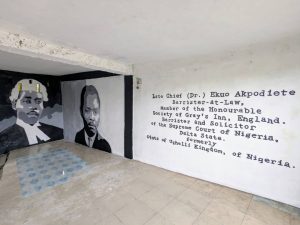
In a life of achievement, Chief Ekuogbe Akpodiete popularly called the Duke by his contemporaries in the UK was an assessment clerk, post office clerk, a court interpreter, an educationist, a business man, a political party chieftain, a Barrister and Solicitor, a Magistrate, the Otota (the Prime Minister) of Ughelli kingdom which is the highest traditional chieftaincy office that underpin the royal office of the Ovie of Ughelli Kingdom.
He was a trail blazer, a strict disciplinarian, a lover of people, and a philantropist. He saw to it that people lived in peace and happiness.
Born on the 4th of April, 1924, to parents cut from an industrious mould, Chief Ekuogbe Rowland Gregory Akpodiete took zealously to education that neither his mother Ughweriaka who was a trader, nor his father Akpodiete who was a farmer had.
He attended the Native Authority Primary School, Ughelli, and Enitona High School, Port Harcourt, for his secondary school education.
He thereafter had a brief teaching career in primary schools in Ofuoma near Ughelli, he worked as a process clerk in the then Sapele Township Department between 1950 and 1953, serving at the same time as an interpreter in the local courts.
He proceeded to the United Kingdom to seek the proverbial Golden Fleece where he worked and paid his way through, studying Law. He was admitted into the Honourable society of Gray’s Inn, England, in 1965, and shortly after, he returned home to Nigeria and attended the Nigerian Law School. He was called to the Nigerian Bar in 1966. He immediately started practice in Lagos. However, his practice in Lagos was regrettably abridged by the Nigerian Civil War, which drove him to his hometown Ughelli in 1967, where he continued to practise among his kith and kin as the first Legal Practitioner.
Chief Ekuogbe Akpodiete established himself in Ughelli. After the civil war, he served in the now defunct Mid-western State Judiciary from 1972 to 1975 as a Magistrate.
He was conferred with the chieftaincy title of Urhukperovie of Ughelli kingdom (the light of the King) by the then reigning Ovie of Ughelli, His Royal Highness Oharisi II of blessed memory in 1977.
In the quest for more knowledge, he went back to England for his Master’s degree in law (LL.M) and later a Ph.D. at the University of Warwick.
He was awarded an honourary doctorate degree (Ph.D) by Tenesse Christian University from the United States of America in 1991.
He became the Otota (the Prime Minister) of Ughelli Kingdom in 1986, an office he occupied until his demise on 9th April 1995.
Chief Ekuogbe Akpodiete was also politically involved. In the heady days of the Awolowo-led Unity Party of Nigeria, he was the party’s legal adviser in Ughelli and was on hand to assist during Chief Obafemi Awolowo’s campaign hosting in Ughelli and its environs.
In view of his love for people and entertainment, he established a popular cinema house, one of the first in Ughelli, known as REGA cinema, coined from his names, alongside an entertainment place called Unutakunu (people talk to people).
Chief Ekuogbe Akpodiete was blessed with wives and many children, grandchildren, and great grand children.
Mr. Olotu Akpodiete, PhD
Executive Director
Olotu & Ekuogbe Rowland Akpodiete foundation
-
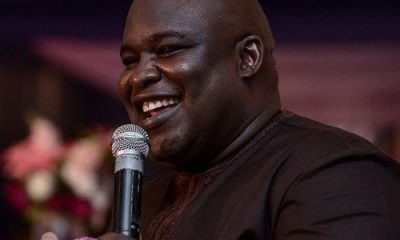
 News17 hours ago
News17 hours agoSAD! Popular Gospel singer, Big Bolaji is dead
-
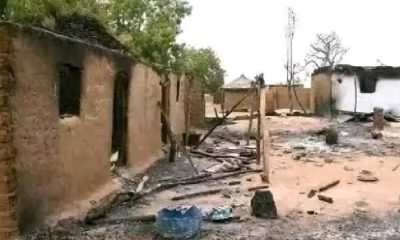
 News8 hours ago
News8 hours agoBLACK EASTER: Over 150 massacred in Plateau, Benue
-
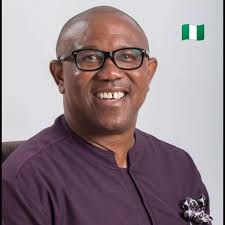
 News20 hours ago
News20 hours agoEASTER:Let’s use this period to pray for compassionate leaders -Obi
-
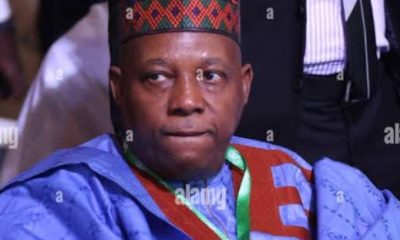
 News19 hours ago
News19 hours agoPresidency speaks on report that Shettima was denied access to presidential villa
-
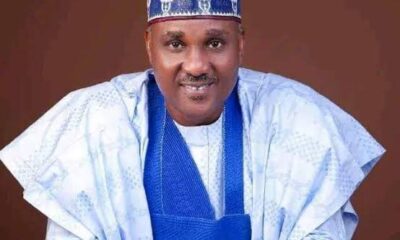
 News19 hours ago
News19 hours agoSpeaker Abbas Salutes Christians at Easter, Urges All To Emulate Selflessness of Jesus
-
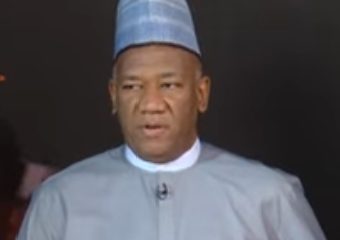
 News19 hours ago
News19 hours ago2027 : “If You’re Truly Smart, Don’t Bother To Contest -Datti tells Tinubu
-

 News4 hours ago
News4 hours agoDouble tragedy: Father, three children, maid killed in Osun road crash
-
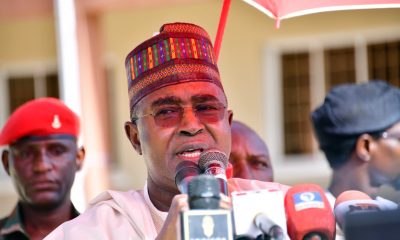
 News20 hours ago
News20 hours agoRemain resolute in fight against drug scourge, Marwa charges NDLEA officers(Photos)






